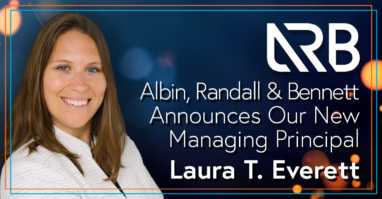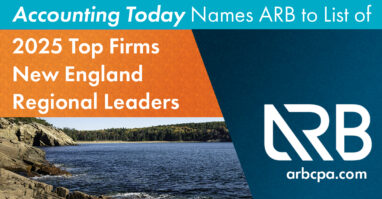Thanks to a relatively obscure state law enacted in 1986, Massachusetts taxpayers may soon receive an unexpected financial break. Until now, the law had not been triggered since 1987, when the Commonwealth had to return nearly $30 million in excess state tax revenue to Massachusetts taxpayers. But the Commonwealth is now poised to credit nearly $3 billion back to eligible taxpayers who could see their Massachusetts Chapter 62F refund as early as November.
Every September, the Massachusetts Department of Revenue sends a report to the State Auditor. Using this report and current and historical data on wages and salaries, and based on the allowable state tax growth factor for the fiscal year, the State Auditor determines whether the net state tax revenues exceed the allowable amount. Under Chapter 62F of Massachusetts law, if the Commonwealth’s tax revenue collections exceed the computed maximum for the fiscal year, the excess revenue must be credited back to the taxpayers.
At nearly $42 billion, Massachusetts tax revenue collections for fiscal year 2022 exceeded the maximum by almost $3 billion. Consequently, roughly 3.6 million taxpayers will receive Massachusetts Chapter 62F refunds.
Eligible taxpayers will receive approximately 14% of their Massachusetts personal income tax liability for the 2021 tax year.
The percentage is determined based on the personal income tax liability in Massachusetts incurred by taxpayers in the tax year immediately preceding the current tax year (in this case, 2021). The percentage is subject to change, since the MA Department of Revenue is still processing 2021 returns as the deadline to file extended 2021 income tax returns just occurred on October 17, 2022.
Massachusetts has provided a Chapter 62F refund estimator to assist taxpayers who wish to estimate their refund based on their 2021 income tax liability.
If you are eligible for a Massachusetts Chapter 62F refund, you will receive it automatically via direct deposit or check sent via mail. No action is required to receive your refund; however, you must file and pay your Massachusetts 2021 personal income taxes no later than September 15, 2023, to ensure your eligibility. Other matters like unpaid tax liabilities, child support, and other types of debt may reduce the amount available to the taxpayer.
Massachusetts Chapter 62F Refunds will be issued based on your 2021 filing status.
Residents, non-residents, fiduciaries filing trust and estate returns, and partnerships and S corporations filing composite returns for non-residents are eligible. However, the refund will be issued based on your 2021 filing status.
For example, if an individual filed a 2021 return but has since passed away, the Massachusetts Chapter 62F refund would still be issued under the individual’s name.
Refunds for composite filings will go to the partnership or S corporation, and the entity will need to determine how to distribute the refund based on the type of entity it is and any relevant terms of the entity’s operating agreement.
Taxation is handled differently at the state and federal levels.
At the state level, Massachusetts Chapter 62F refunds are not taxable as income. At the federal level, these refunds may be taxable in certain limited circumstances. If someone itemized deductions on their 2021 federal return, it is possible some portion of the Chapter 62F may be taxable. Taxpayers who receive a Chapter 62F refund will also receive a Form 1099-G from the Massachusetts DOR no later than January 31, 2023.
Business owners may get a reduced refund.
2021 was the first year that an S corporation or an LLC could make an election to pay the Massachusetts Pass-Through Entity Tax (PTE Tax). The elective PTE Tax was enacted in response to the $10,000 limitation on state and local income tax itemized deductions at the federal level. The elective PTE Tax enables the individual shareholders and members of the entity to obtain a federal income tax deduction for the Massachusetts state tax attributable to the entity. Absent the election, the Massachusetts state tax attributable to the entity would be federally nondeductible.
Individual business owners who benefited from the Massachusetts elective PTE Tax were able to claim a refundable credit on their 2021 Massachusetts individual income tax return. To compute the Massachusetts Chapter 62F refund, the 2021 PTE Tax refundable credit reduces an individual’s 2021 Massachusetts income tax liability. As a result, those individual business owners will find their Chapter 62F refund reduced or eliminated completely.
Those individual business owners may feel this is an unfair result, they might question whether the elective PTE Tax was the right choice, and they might wonder if the elective PTE Tax can be revoked to obtain the Chapter 62F refund. The elective PTE Tax is an irrevocable election, so it cannot be undone. But even if the PTE Tax election could be revoked, it would most likely not be the right move. Individuals in this situation will almost always find the federal tax benefit of the elective PTE Tax to be greater than the lost or reduced Massachusetts Chapter 62F refund.
Contact Albin, Randall & Bennett
ARB’s Individual & Business Tax Teams are here to help. If you have questions about the Massachusetts Chapter 62F refund, want to discuss how it could affect your taxable income, or need help navigating the Massachusetts PTE Tax, contact me today.
by Dan Doiron, CPA, CVA
Dan Doiron has been in public accounting since his college internship with ARB in 1986. He has been a Principal since 1996 and works extensively with all types of clients to solve their compliance and tax planning issues. Dan was the May 1987 State of Maine Gold Medalist for earning the highest scores on all four parts of the CPA Examination. He is the Practice Leader of both ARB’s Business Tax Services Team and ARB’s Private Client Advisory Services Team.





